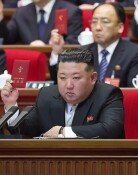China-linked espionage harder to combat now
China-linked espionage harder to combat now
Posted April. 24, 2025 08:05,
Updated April. 24, 2025 08:05
“Responding to China’s covert operations has become more difficult.”
This sentiment has spread among South Korean national security officials since the Dec. 3 emergency martial law declaration. During the political turmoil surrounding the president’s impeachment, anti-China protests and false claims such as “99 Chinese spies arrested at the Election Training Institute” gained traction. These developments fostered widespread suspicion about Chinese influence operations in South Korea. Officials now worry that growing public fatigue with far-right, anti-China rhetoric is dulling awareness of actual threats posed by Chinese espionage.
Indeed, Chinese operations have become more brazen and sophisticated. At least four security-related incidents involving Chinese nationals have been reported this year alone. Last month, a Chinese national was arrested for recruiting an active-duty soldier to gather information on joint South Korea-U.S. military exercises. Eight South Korean and Chinese nationals are reportedly linked to this intelligence-gathering network. Authorities suspect China’s Central Military Commission Joint Staff Department, the counterpart to South Korea’s Joint Chiefs of Staff, is behind the scheme. In another case, a Chinese agent affiliated with China’s Ministry of State Security acquired classified military data, including a list of undercover operatives, from a South Korean civilian employee of the Defense Intelligence Command. China’s various military and intelligence agencies are believed to be recruiting South Korean nationals to carry out wide-ranging espionage operations across multiple fronts.
Chinese nationals have also been increasingly caught photographing sensitive sites. Two Chinese high school students were arrested just three days after entering South Korea, having taken thousands of photos of U.S. and South Korean military bases in Osan, Cheongju, and Pyeongtaek, as well as high-security airports in Incheon, Jeju, and Gimpo. In a separate incident last year, Chinese individuals used drones to capture images of a U.S. aircraft carrier docked in Busan and had been filming military sites since 2022.
Though these suspects claimed their actions were driven by mere curiosity, there is no doubt that their targets centered on critical U.S.-South Korea strategic assets and operational bases. National security officials believe China aims to gather intelligence on sites that would play key roles in supporting Taiwan in the event of a cross-strait conflict.
Despite these concerns, South Korea’s espionage laws remain outdated. The current law, established 72 years ago, defines espionage in relation to “enemy states,” which is interpreted to mean only North Korea. A proposed revision that would expand the definition to include “foreign” entities remains stalled in the National Assembly. As other nations adapt to a new era of hybrid warfare and digital espionage, South Korea lags behind. Even when a Chinese national entered the country and immediately filmed the National Intelligence Service building in Heoninreung, prosecutors could only press charges under military installation and cultural heritage laws, not the espionage statute.
Authorities are increasingly alarmed by covert influence operations, which involve spreading disinformation online and fostering pro-China sentiments to foment social division. China has reportedly created over 200 fake news websites masquerading as South Korean media outlets. Since 2022, China-backed online troll networks have expanded their operations in South Korea, promoting Chinese supremacy and exacerbating societal divisions.
Yet South Korea lacks both the legal tools and societal consensus to counter these operations. There is no guarantee that the kind of AI-driven disinformation China deployed in Taiwan’s elections won’t resurface in South Korea. This is precisely why the country must not allow distorted anti-China narratives to distract from the genuine and growing national security threats.





![매일 반복하는 이 습관, 동맥 야금야금 망가뜨린다[노화설계]](https://dimg.donga.com/c/138/175/90/1/wps/NEWS/IMAGE/2026/03/03/133455012.3.jpg)

